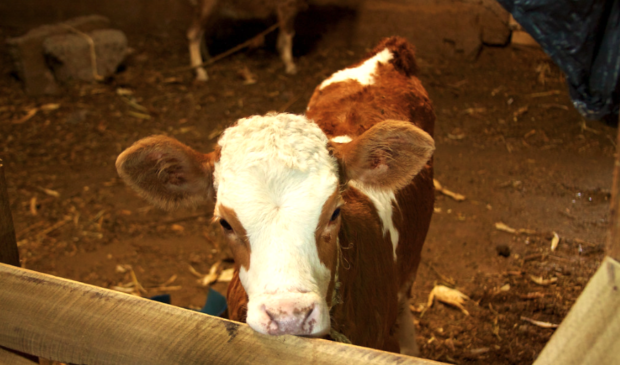Animal Advisory Commission recommends adopting ordinance to close bull hook loophole
The Animal Advisory Commission has made a unanimous recommendation to City Council to amend the city code in order to close a loophole created by the bull hook ban.
“We are confident that enacting (the ordinance) accomplishes the most good for the most animals and in no way authorizes or condones any cruelty to livestock,” reads the commission’s recommendation.
In 2015, when Council adopted the ordinance banning the use of bull hooks to protect elephants, Rodeo Austin officials were concerned that the regulation would negatively affect the rodeo. The code language proposed by the ordinance had three sections, and the first two were specifically about banning the use of the bull hook on or around elephants.
At the time, rodeo officials expressed concern that the definition of bull hook could unintentionally ban the use of a tool called a show stick, a hooked rod used to exhibit cattle. They also argued against the inclusion of horses and dogs in the definition of circus animals. Council stripped out the third part of the proposed code section, which contained six parts about elephant treatment, and adopted the ordinance with the first two parts.
“That’s a big problem to go after the rodeo in Texas, because even though the City Council members are very Austin-friendly, they also love the rodeo,” David Lundstedt, outgoing chair of the commission, told the Austin Monitor. In 2015, Lundstedt assured Council and the rodeo that the only goal was to ban the bull hook.
However, the Humane Society of the United States and Action for Animals felt that the city had provided a loophole in the treatment of animals. Soon after Council’s passage of the ordinance, the Animal Advisory Commission recommended a new city ordinance intended to close any loophole created by Council, but the matter remained on the shelf until this year.
Lundstedt told the Monitor that the commission had trouble getting the ordinance through Council because former Council Member Ora Houston “would not let it come to her committee,” out of a concern it might prevent the circus from coming to town. Houston served on Council from 2015-2019.
Lundstedt decided to bring the ordinance back up for consideration as he ends his term chairing the commission.
The language of the new proposed animal training ordinance states, “A person may not train or control an animal by the use of a baseball bat, axe, handle, pitchfork, bull hook or device of similar design for similar purpose.” It also says that the proposed law does not apply to animals defined as livestock. In plain terms, this means livestock – cattle, sheep, horses, goats and pigs – would not benefit from this ordinance.
City Council was supposed to discuss the proposed animal training ordinance on March 4. But the item was pulled and sent back to the Animal Advisory Commission for reconsideration as it became a cause of concern for community members who worried that, because of the exemption, livestock could be subject to cruelty.
On March 8, the commission unanimously recommended that the clause exempting livestock should stay as originally recommended, since the Texas Penal Code already “sets much harsher penalties calling cruelty to livestock a class A misdemeanor and a felony subject to jail time.”
“Anyone performing a cruel act under the state penal code would still be prosecuted for cruelty against livestock,” Commissioner Katie Jarl explained.
Commissioner Craig Nazor added that, with the Texas Legislature in session, anything that appears anti-rodeo might prove detrimental to passage of the ordinance. “We have to take it one step at a time, or else we could have the whole thing knocked out from under us,” Nazor said.
Texas House Bill 543, which is up for a hearing this week in the House Agricultural and Livestock Committee, is related to working animals. It states that “a political subdivision may not impose a governmental requirement that terminates, bans or effectively bans by imposing undue financial hardship, the job or use of a working animal or an enterprise that employs a working animal.” The bill would preempt any action by a city or municipality to impose its own protections on working animals.
The animal training ordinance is expected to go back to Council for discussion on March 25. If the commission recommended removing the part about exempting livestock from the ordinance, that could prompt the Legislature to fast-track HB 543, which would limit Council’s ability to impose rules on animal treatment even further, Jarl said.
“You have to pick your battles sometimes, or else you are going to lose,” noted Nazor.
Photo made available through a Creative Commons license.
The Austin Monitor’s work is made possible by donations from the community. Though our reporting covers donors from time to time, we are careful to keep business and editorial efforts separate while maintaining transparency. A complete list of donors is available here, and our code of ethics is explained here.
You're a community leader
And we’re honored you look to us for serious, in-depth news. You know a strong community needs local and dedicated watchdog reporting. We’re here for you and that won’t change. Now will you take the powerful next step and support our nonprofit news organization?









